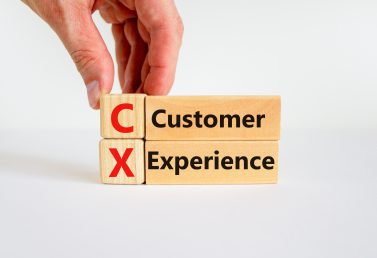Apply Your Knowledge
“With every mistake,” sang the Beatles, “we must surely be learning.” (If only!) There are few professions in which this concept is better understood than in sales.
Dan Gizzi certainly understands: As a longtime sales professional and sales leader, he says he’s made his share of mistakes at every level. “It’s a learning process every day,” he says. Sales professionals, he says, shouldn’t be afraid to make mistakes, but always learn as much as they can from them moving forward.
Dan spoke with us in a wide-ranging interview on the Sales Lead Dog podcast to share some of the mistakes he’s made in his career and what he learned from them, as well as his thoughts on CRM and other sales technologies.
Dan’s Career Story
Armed with a computer science degree, Dan started his career in technology, but “I realized that I was much better at talking about coding and talking about technology than I was building it.” He jumped to an inside sales job at a publishing company and shortly thereafter transitioned to outside sales in his territory in the U.S. Midwest.
Over time, he found himself in sales leadership roles, such as senior sales representative or solutions-level roles, and found he enjoyed the challenges of leading, coaching, and mentoring sales teams. This drive led him to his current role as vice president of sales for Magic Edtech, an global educational technology provider.
Dan says the three factors that have helped him get to where he is now are:
- Authenticity: “Really being able to be yourself is important in sales.”
- Short-term memory: “Having a short-term memory for the things that didn’t go our way, and still being able to wake up in the morning, put on the face, and show up the next day.”
- Humility: “In sales, we’re only as good as what we did yesterday, and today’s a new day.”
The Importance of Learning From Mistakes
Dan says the key to learning from mistakes is having a standard process, as a sales organization, for reviewing failures for root causes–and to perform these reviews as soon as possible after the loss. The review should involve all of the teammates that were involved in the engagement with the prospect, as well as other stakeholders in the business who might not have been directly involved. When possible, it is also important to get feedback from the client.
Thoughts on CRM
Dan has found that CRM can be an important tool to use in that failure review process. The CRM should contain the entire history of the engagement, including all communications and meeting notes, so the team can conduct the review from a single source of truth and not scattered documents, spreadsheets, and emails that can be overlooked or difficult to analyze.
For that reason, among others, Dan works in his CRM tool all day, every day, and, he says, “I harp on my team” to do the same.
Of course, not all CRM solutions are created equal. Dan has seen quite a few, and says that “some are better than others. I think the best CRMs in the world are the ones that you can get your information from quickly with as few steps as possible.”
For more one Dan’s thoughts on sales, sales leadership, CRM and sales technology in general, and the role of marketing technology in the sales process, listen to his interview on the Sales Lead Dog podcast.


